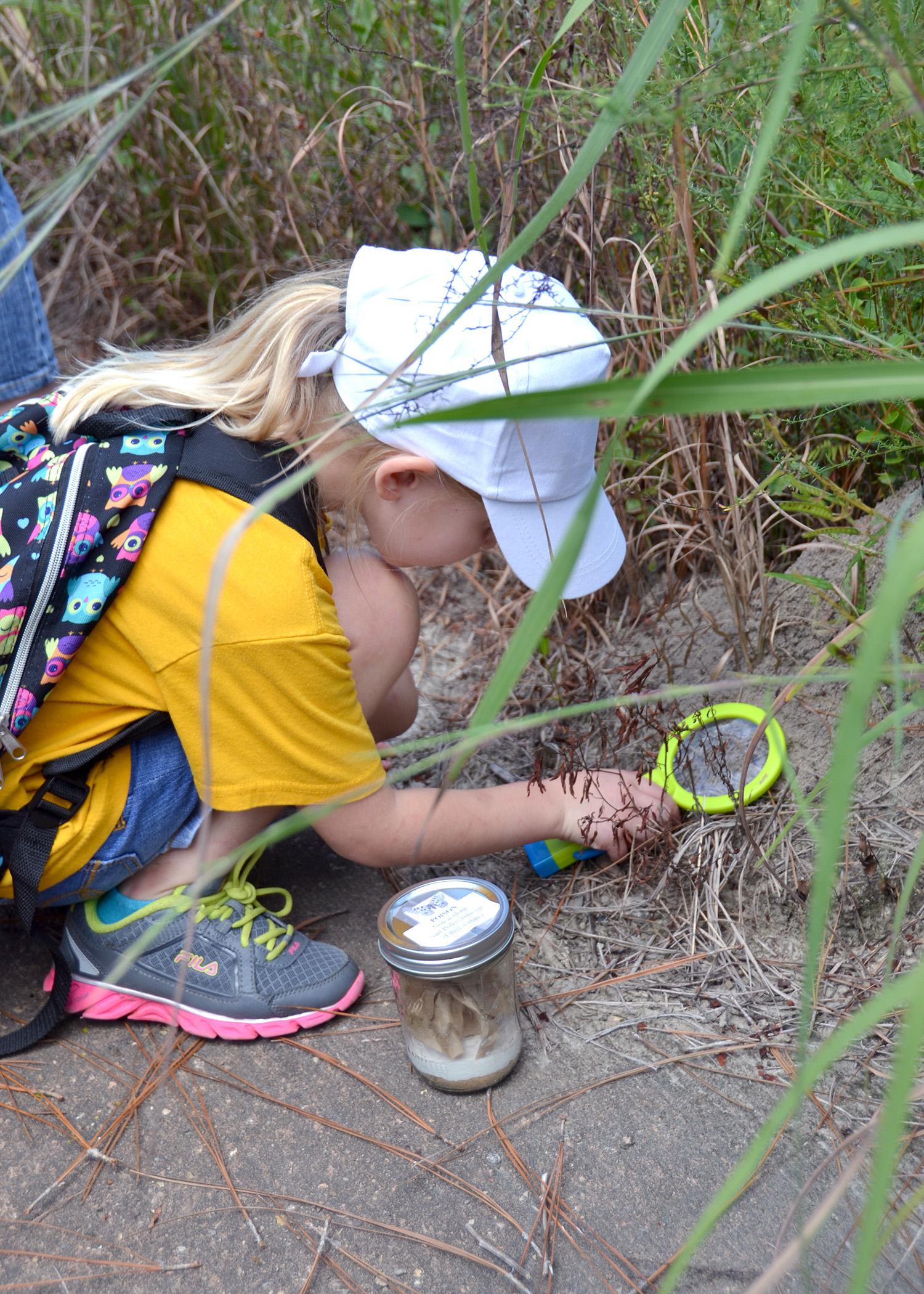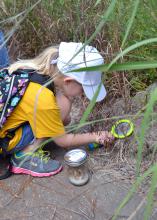Information Possibly Outdated
The information presented on this page was originally released on October 1, 2013. It may not be outdated, but please search our site for more current information. If you plan to quote or reference this information in a publication, please check with the Extension specialist or author before proceeding.
Seventh annual Bugfest draws large crowd
PICAYUNE – “Endangered,” “nocturnal” and “habitat” might not be words that appear on every second-grader’s vocabulary test. But West Hancock Elementary School teacher Teri Borne said insects help her teach everything from science to language arts.
That is why Borne, an avid insect collector and nature lover, takes her class to Bugfest at Mississippi State University’s Crosby Arboretum every year.
“I incorporate insects and nature in all aspects of learning in my classroom,” Borne said. “I have such a love for it myself, and I want to extend that appreciation for nature to my students. It’s important that they understand the significance of the environment and how to take care of it because it is crucial to our well-being and survival.”
The seventh annual Bugfest Sept. 27 and Sept. 28 drew around 1,000 visitors -- almost twice as many as last year, said Pat Drackett, arboretum director. The hands-on event is designed to introduce children and adults to insects and their various roles in nature. Participants have the opportunity to collect and identify insects, visit information booths, make crafts and play games.
Borne said her students are fascinated by insects.
“They don’t say ‘eew’ anymore,” she said.
John Guyton, Extension entomology specialist in MSU’s Department of Biochemistry, Molecular Biology, Entomology and Plant Pathology, said he wants people, especially children, to get excited about insects.
”Insects are a child’s most common encounter with wildlife in everyday life,” Guyton said. “They should learn the beneficial insects from the harmful. They are all going to be chasing insects out of their homes and cars for the rest of their lives.”
For many, Bugfest is the only positive meeting kids have with insects, Guyton said.
“Too often children have negative experiences with insects,” he said. “A parent or teacher will have them shoo away insects that really aren’t harmful. Although it is unintentional, it could start a life-long phobia of insects for them.”
Insects offer opportunities for learning, and not just about science, Guyton said.
“There are absolutely dozens and dozens of concepts that teachers can teach using insects,” Guyton said. “Butterfly migration can help students learn cardinal directions. I do a demonstration with termites, which are blind, to illustrate their use of scent as a means of communication.”
Just learning to tell the difference between a fly and wasp is a useful skill that young people need, Guyton said. However, many children discover that they are interested in insects and their behaviors, which might not be covered extensively in the classroom.
“Schools really don’t teach the things kids learn during Bugfest,” Guyton said. “Most teachers don’t know a lot about insects, but insects are great teaching tools.”
After a short orientation from Guyton about which insects to look for and how to capture them properly, attendees journeyed through the arboretum looking for insects, such as butterflies, bees and walking sticks. They could study them and then release them or keep them. For those who chose to keep them, volunteers, including MSU Bug Camp attendees and entomology department graduate students, helped pin each insect to boards and described its life cycle and habits.
To stay informed about upcoming events at the Crosby Arboretum, sign up for the email listserv by emailing Richelle Stafne at rstafne@ext.msstate.edu. For more information about Bug Camp and other educational opportunities through MSU, contact the local Extension office.



